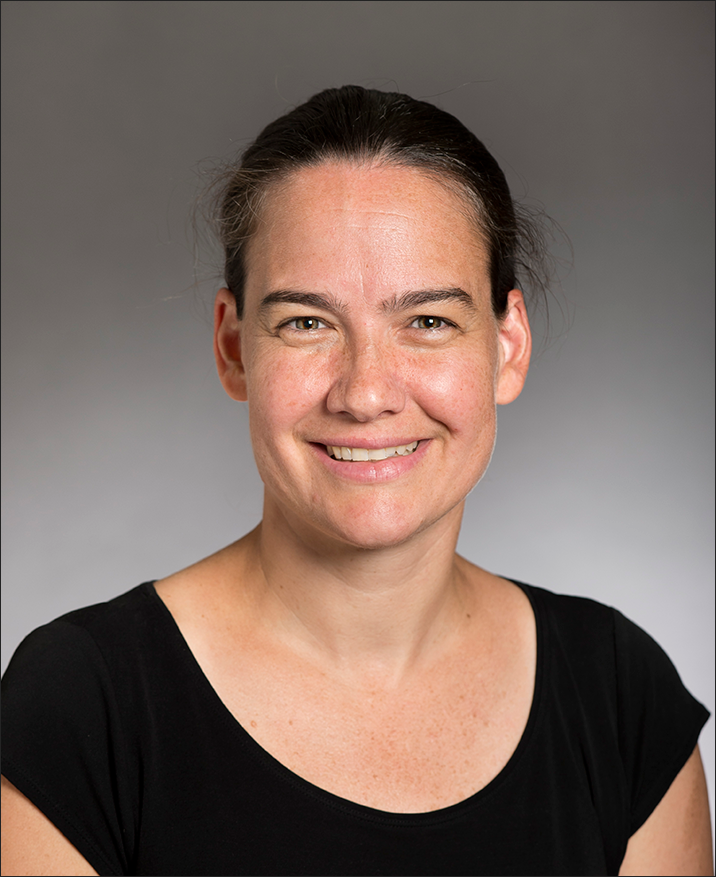Nugent Honored by National Academies
CMU statistics and data science professor joins national conversation about the future of higher education
By Katy Rank Lev
Media Inquiries- Dietrich College of Humanities and Social Sciences
- 412-956-9425
Today's college students are preparing for careers that do not yet exist. For Carnegie Mellon University’s Rebecca Nugent, that means education must adapt, creating personalized environments for student-centric lifelong learning.
Last summer, the National Science Foundation (NSF) invited academics, including Nugent, the Stephen E. and Joyce Fienberg Professor in Statistics and Data Science, to submit their work to its Big Ideas competition, asking, "What should undergraduate science, technology, engineering and mathematics (STEM) education look like in 2040 and beyond?" The competition is designed to both discuss ambitious, large-scale changes for the country and to identify funding priorities for the next 20 years.
"Rebecca Nugent has been visionary and relentless — and I'm very excited to see her work recognized nationally." — Richard Scheines
Nugent, competing against experts from across the nation, explained that nonlinear career paths are becoming the norm.
"The four-year, continuous college experience is going to morph and become less common," Nugent said. "Universities need to prepare for this shift by becoming more nimble, responsive and flexible as students move in and out of different learning environments."
"The pandemic has definitely accelerated this shift," Nugent said. "Students are moving between community college and four-year universities and stopping/starting their education to meet life obligations like caring for family."
Nugent says online courses and micro-credentials will become critical pieces of tomorrow's career preparation and points out that STEM content will bleed into non-STEM topics in a blending of disciplines that more fully meets the needs of a global society. Nugent imagines a future where online learning management systems all "talk" to one another, where students can carry their credentials with them wherever they're learning.
Nugent said, "Learning environments and portfolios should be personalized to each student and follow them as they move through communities of learning rather than be fixed parts of individual universities."
Nugent said democratizing data can make this happen, allowing everyone to make informed decisions about all aspects of their lives.
Rebecca Nugent's video, "Personalized Learning Environments for Student-Centric STEM," was chosen as a winner in the National Science Foundation's Big Ideas competition for the future of higher education.
One example of this responsive, student-centric model is the Integrated Statistics Learning Environment (ISLE), a browser-based educational platform that supports data analysis as well as report writing, presentations, lecture slides, videos and student-instructor interaction. ISLE can be used on any computer or tablet device. Users can interact with data, graphs and models with a few clicks, no coding skills necessary. Initially developed as part of Philipp Burckhardt’s Ph.D. in the Department of Statistics and Data Science, the ISLE project is co-led by Nugent, Burckhardt and Department Head Chris Genovese.
"ISLE is a great example of how Carnegie Mellon University is applying more than 30 years of research into how students learn and which teaching approaches produce the most learning," said Richard Scheines, Bess Family Dean of the Dietrich College of Humanities and Social Sciences and faculty lead for the Simon Initiative. "Our Statistics & Data Science Department is taking a very forward-looking approach to teaching our students soup-to-nuts data science: how to effectively collect, analyze, interpret and then tell a compelling story based on the data. Rebecca Nugent has been visionary and relentless — and I'm very excited to see her work recognized nationally."
Nugent said ISLE also allows for studying how people are using the tool and making decisions about data, writing and collaboration. Instructors using ISLE can adapt their teaching to be more impactful based on what students are actually doing, retaining and learning. Both STEM and non-STEM courses at CMU and other universities are using ISLE. Carnegie Mellon's English Department, for example, uses ISLE in their "Writing About Data" and "Methods in Humanities Analytics" courses.
This November, Nugent's Big Idea submission was selected as one of 25 winners by the National Academies of Sciences, Engineering, and Medicine. The National Academies, with sponsorship from the NSF, held a symposium entitled “Imagining the Future of Undergraduate STEM Education.” Nugent joined innovators from higher education alongside policy makers, funders and representatives from professional associations and industry to discuss the critical next steps needed to transform higher education.
Nugent's work was highlighted throughout the symposium and her video is featured on the National Academies' website.
